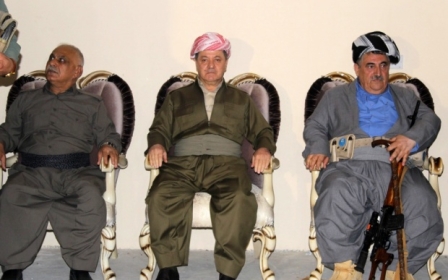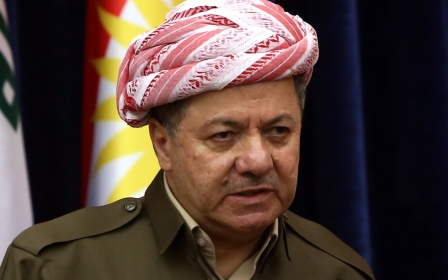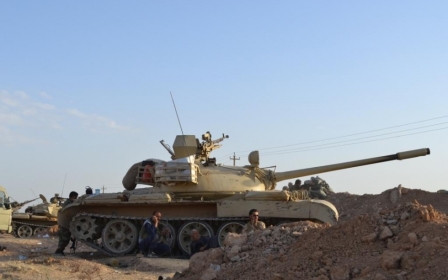Iraqi Kurds announce billions of dollars of oil sales
Kurdish authorities say they have made more than $3.29bn since June in direct oil exports, a practice Baghdad says is illegal

Baghdad is in dispute with Iraqi Kurds over the sale of natural resources (AFP)
Published date: 1 December 2015 18:14 GMT
|
Last update: 8 years 11 months ago
Iraq's autonomous Kurdish region said it has made more than $3.29bn in revenues since June from direct oil export sales that the country's federal government considers illegal.
Baghdad - which also announced a rise in exports on Tuesday - insists all oil sales must go through the federal government, while the Iraqi Kurdish government argues that lacking federal funding justifies independent action.
Both sides are facing financial crises due to low oil prices and the costly war against the Islamic State group, which overran large parts of Iraq in 2014.
The Iraqi Kurdish government said in a report that it averaged $682mn per month in revenue from direct sales from June through mid-November, up from an average of $347mn it had received from Baghdad in earlier months.
The federal oil ministry meanwhile said it exported an average of 3.36mn barrels of oil per day in November, a level "not realised for decades".
But the increase in exports appeared to be at least partially due to reserves of oil not exported in October due to bad weather at the southern port of Basra, and was also dampened by a price per barrel of $36.
Baghdad and Kurdistan reached a deal on oil exports and funds at the end of 2014, under which the region was to export 250,000 barrels of oil per day and another 300,000 bpd from the disputed province of Kirkuk.
In exchange, the federal government would release the region's share of the national budget.
Kurdistan says its exports were initially lower than expected but later surpassed the required level, while an oil ministry official said this was not the case.
The region said it began direct export sales in June "due to shortfalls caused by the Iraqi federal government in sending less than 40 percent of budget entitlement," but the oil ministry official said the practice started long before that.
"Any amounts leaving Iraq without the approval of the federal government and the oil ministry is considered smuggling," the official said, restating Baghdad's long-held stance.
A swathe of northern territory claimed by both Baghdad and the Kurdish government, including oil-rich Kirkuk, ties in with the dispute between the two sides over resources.
Kurdish forces gained or solidified control over many disputed areas, including large parts of Kirkuk, after federal troops fled the IS group's June 2014 offensive.
Baghdad is currently ill-positioned to force either the territory or oil issues, with its troops tied down battling IS. Kurdish forces, which have strong international backing, also playing a major role in the anti-jihadist fight.
New MEE newsletter: Jerusalem Dispatch
Sign up to get the latest insights and analysis on Israel-Palestine, alongside Turkey Unpacked and other MEE newsletters
Middle East Eye delivers independent and unrivalled coverage and analysis of the Middle East, North Africa and beyond. To learn more about republishing this content and the associated fees, please fill out this form. More about MEE can be found here.




